 SYSTRA acquires Ardanuy Ingenieria to bolster Global Rail and Urban Transport expertise
SYSTRA acquires Ardanuy Ingenieria to bolster Global Rail and Urban Transport expertise Metro, Monorail and Pod Taxis: How MMRDA is Reinventing Mumbai’s Urban Transport?
Metro, Monorail and Pod Taxis: How MMRDA is Reinventing Mumbai’s Urban Transport?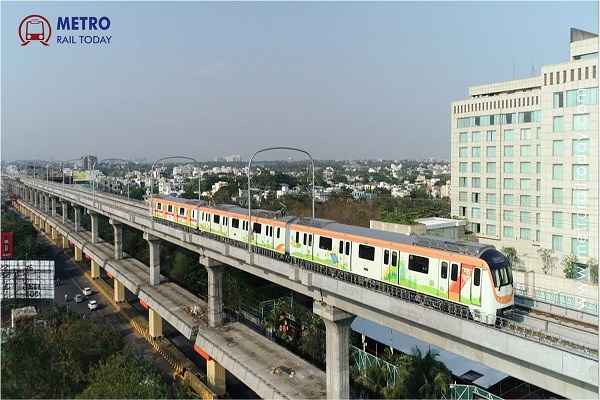 Maha Metro partners with IIT Kanpur to shield Nagpur and Pune Metro Systems from Cyber threats
Maha Metro partners with IIT Kanpur to shield Nagpur and Pune Metro Systems from Cyber threats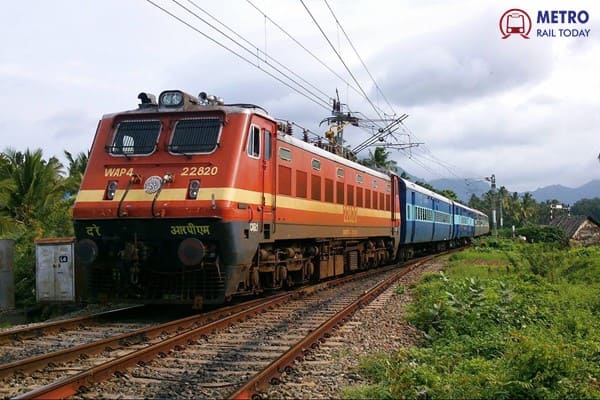 R. Rajagopal appointed as Member (Traction & Rolling Stock), Railway Board, Ministry of Railways
R. Rajagopal appointed as Member (Traction & Rolling Stock), Railway Board, Ministry of Railways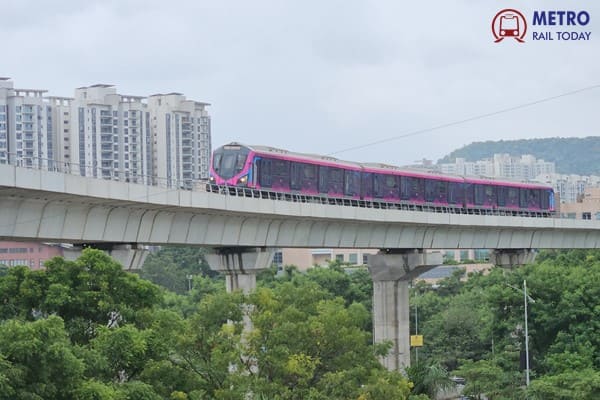 Maha Metro to appoint DPR Consultant for Pune's Shivajinagar-Kondhwa Metro Line
Maha Metro to appoint DPR Consultant for Pune's Shivajinagar-Kondhwa Metro Line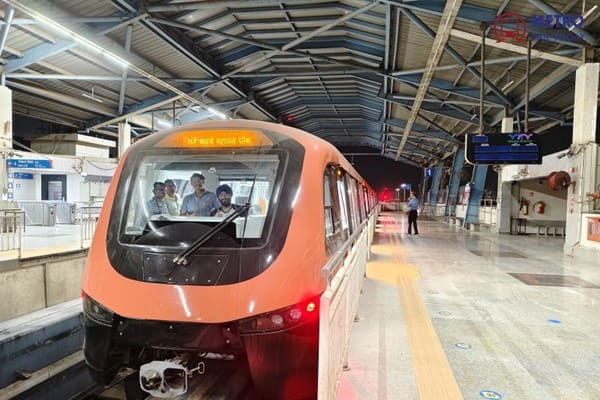 Mumbai Monorail suspension sparks Job Losses and Backlash despite system upgrade plans
Mumbai Monorail suspension sparks Job Losses and Backlash despite system upgrade plans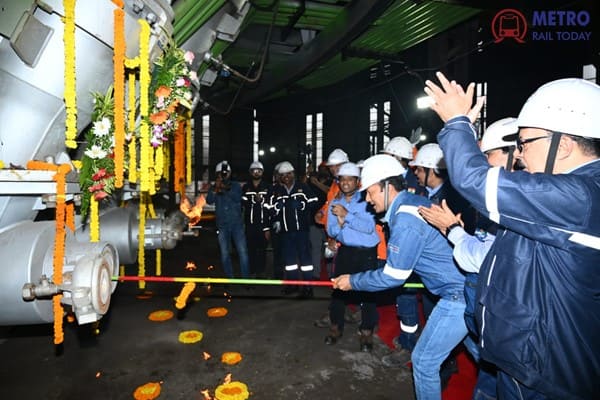 Jindal Steel Commissions One of India’s Largest Blast Furnaces in Odisha
Jindal Steel Commissions One of India’s Largest Blast Furnaces in Odisha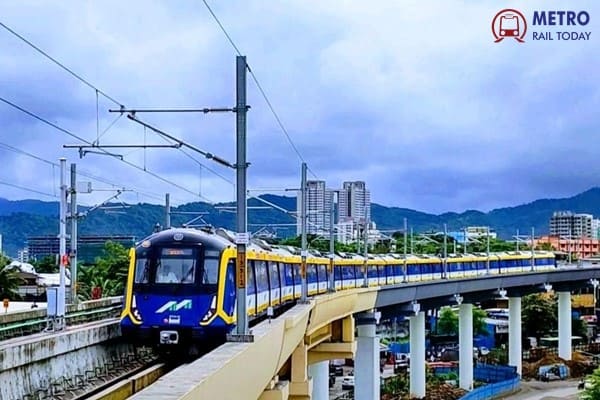 RDSO successfully conducts Brake and Speed trial tests on Mumbai Metro Line 9
RDSO successfully conducts Brake and Speed trial tests on Mumbai Metro Line 9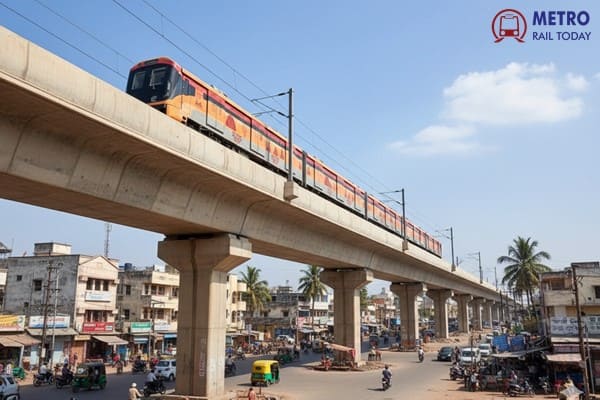 Patna Metro gears up for public launch, Final Trial Run scheduled for September 29
Patna Metro gears up for public launch, Final Trial Run scheduled for September 29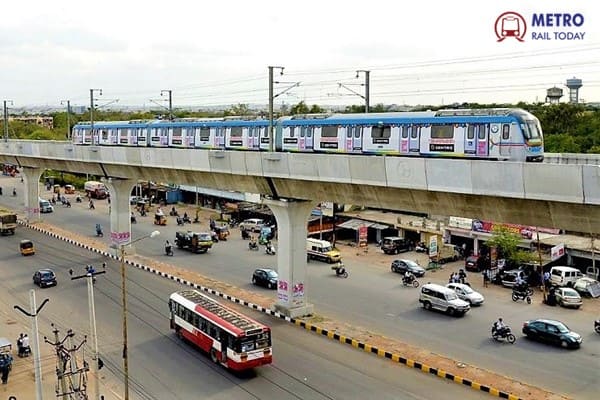 Telangana Govt takes over Hyderabad Metro Phase 1 as L&T exits project
Telangana Govt takes over Hyderabad Metro Phase 1 as L&T exits project
RDSO tests India's First Hydrogen Fuel Cell Motor Coach
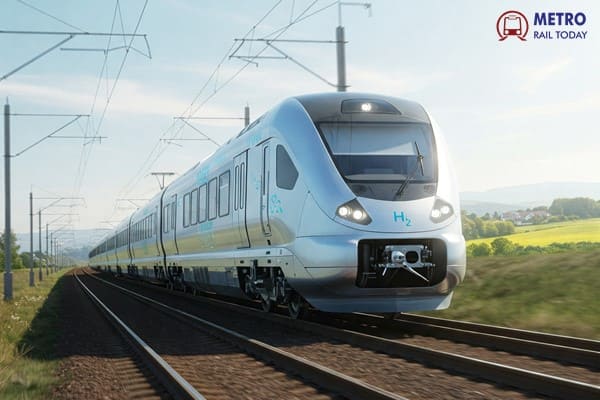
Lucknow, India (Metro Rail Today): The Indian railway industry is on the brink of a revolutionary change as the Research Design and Standards Organisation (RDSO) embarks on an ambitious project that could redefine the future of rail transportation. The RDSO, an esteemed body under the Ministry of Railways, has recently conducted groundbreaking tests on India's first hydrogen fuel cell motor coach. This milestone marks a significant advancement in the country's pursuit of sustainable and eco-friendly transportation solutions.
A New Era of Green Transportation
The hydrogen fuel cell motor coach represents a remarkable step forward in the quest for greener rail systems. Hydrogen fuel cell technology is gaining traction worldwide as a viable alternative to traditional diesel-powered engines. This innovative approach leverages hydrogen as a clean energy source, producing electricity through chemical reactions rather than combustion.
The motor coach, tested at Indira Industries in Ranipet, Tamil Nadu, showcases a hybrid configuration that combines hydrogen fuel cells with batteries and electric traction motors. This configuration ensures a continuous and stable power supply for the coach, optimizing performance and efficiency. The hydrogen fuel cells generate electricity from hydrogen, which then charges the batteries that power the electric motors. This setup not only enhances the coach's performance but also significantly reduces emissions, making it a crucial component in the push towards a more sustainable railway network.
The Role of Hydrogen in Sustainable Transport
Hydrogen is rapidly emerging as a key player in the green energy sector due to its versatility and minimal environmental impact. Unlike conventional fuels, hydrogen can be produced locally through renewable energy sources, such as solar, wind, and hydroelectric power. This process is not only emission-free but also helps reduce dependency on fossil fuels.
RDSO's project aligns with the broader goals of promoting green energy solutions and reducing the carbon footprint of the transportation sector. The use of hydrogen fuel cells in railways has the potential to minimize greenhouse gas emissions and air pollutants, contributing to cleaner air and a healthier environment.
Hydrogen Production and Infrastructure
One of the significant advantages of hydrogen fuel cells is the ability to produce hydrogen locally, often using surplus energy from renewable sources. Electrolyzers, which are pivotal in this process, split water into hydrogen and oxygen using electricity. When this electricity comes from renewable sources like solar or wind, the entire process is sustainable and eco-friendly.
The development of hydrogen fueling infrastructure is also a crucial aspect of this initiative. This infrastructure not only supports the hydrogen fuel cell motor coaches but also extends to other transportation modes such as buses and trucks. By reducing reliance on fossil fuels across various transportation sectors, hydrogen fueling infrastructure can drive significant progress toward a more sustainable future.
RDSO's Role and Achievements
The Research Design and Standards Organisation (RDSO) is a leading institution under the Ministry of Railways, responsible for setting standards and conducting research for the Indian Railways. As the sole research and design body for Indian Railways, RDSO plays a pivotal role in shaping the future of railway technology and operations.
In June 2021, RDSO achieved a landmark milestone by becoming the first institution to be designated as a Standard Development Organization (SDO) under the "One Nation One Standard" initiative by the Bureau of Indian Standards (BIS). This initiative aims to establish a unified standard for research and standard development organizations across India, setting a benchmark for global standards.
RDSO's expertise spans various aspects of railway equipment design, standardization, and addressing challenges related to railway construction, operation, and maintenance. The organization’s commitment to advancing technology and promoting best practices in the railway sector is evident in its latest hydrogen fuel cell motor coach project.
Future Prospects and Implications
The successful testing of India's first hydrogen fuel cell motor coach is a significant achievement with far-reaching implications. As the project progresses, it is expected to pave the way for the broader adoption of hydrogen technology in railways and other transportation sectors. This shift not only aligns with global sustainability goals but also positions India as a leader in innovative green transportation solutions.
The integration of hydrogen fuel cells into India's railway network could serve as a model for other countries looking to reduce their environmental impact. With ongoing advancements in technology and infrastructure, the vision of a cleaner, more efficient transportation system is becoming increasingly attainable.
The Research Design and Standards Organisation's successful testing of India's first hydrogen fuel cell motor coach marks a pivotal moment in the evolution of sustainable rail transportation. By leveraging hydrogen technology, RDSO is driving significant progress toward reducing emissions and promoting green energy solutions. This initiative not only highlights India's commitment to environmental sustainability but also sets a precedent for future advancements in the global transportation sector. As the project moves forward, it will undoubtedly contribute to a cleaner, more efficient railway network and inspire similar efforts worldwide.




